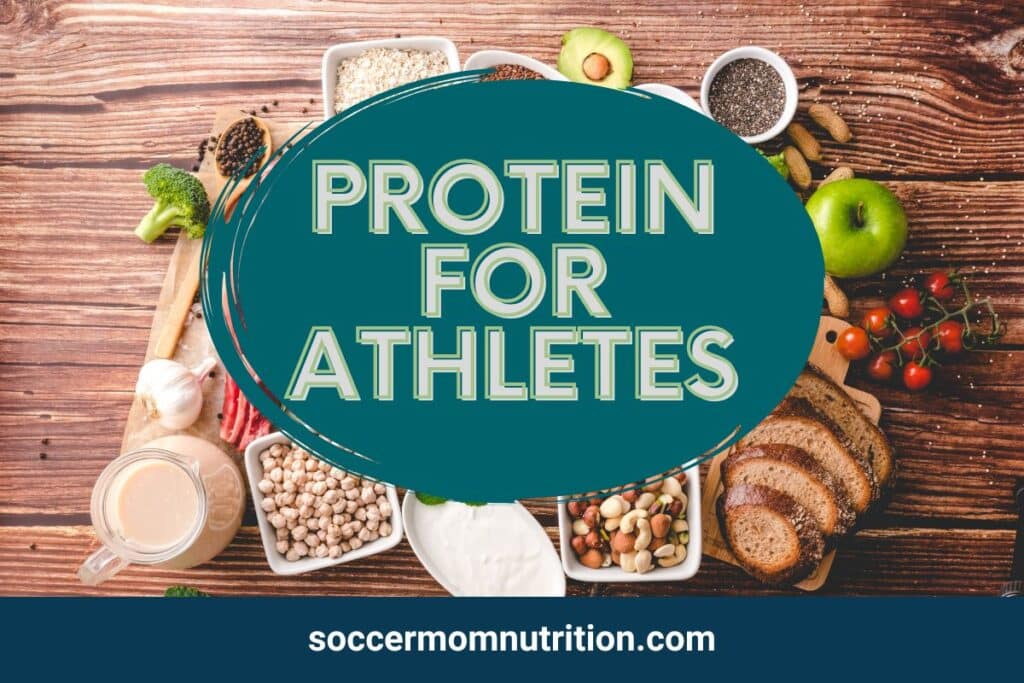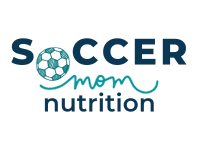Protein for Athletes: The Complete Guide
Protein is an essential nutrient for everyone. But it’s especially key to know about protein for athletes who want to improve their performance, recovery and health.
In this post, we will explain why athletes need protein, how much protein they should eat, how to spread it out over the day and some high-quality food options for protein.

Why protein for athletes
Protein is made up of amino acids. These are the building blocks of muscle, bone, skin, hair and other tissues in the body. Protein also plays a role in transporting nutrients, producing enzymes and regulating hormones.
Adequate protein for athletes helps
- Repair and rebuild muscle tissue that is damaged during exercise
- Adapt to training and increase muscle strength and size
- Optimize carbohydrate storage in the form of glycogen
- Enhance immune function and prevent infections
- Support bone health and prevent injuries
How much protein athletes should eat
The amount of protein for athletes depends on several factors, such as your age, body weight, activity level, type of sport, training intensity, and goals.
The general recommendation for protein intake for athletes is 1.2 to 2.0 grams per kilogram of body weight per day. (1)
Some athletes may benefit from slightly more protein than this range, especially if you are in a calorie deficit, have a low body fat percentage or are recovering from an injury.
However, you should consult with your provider or sports dietitian nutritionist for any questions regarding increased protein intake.
Soccer players and protein needs
Since soccer is a demanding sport, soccer players have specific protein needs that differ from other athletes. You should eat enough protein to support muscle repair and growth, as well as your immune function and injury prevention. (2)
Soccer players need around 1.2-1.7 grams of protein per kilogram of body weight per day. And when possible from high-quality sources such as meat, poultry, fish, eggs, dairy products, soy products, nuts and seeds.
Soccer players should also consume protein before and after training and matches to optimize your muscle protein synthesis and recovery.
Estimating protein for athlete needs
To estimate your protein needs, you can use this simple formula:
Protein (grams) = Body weight (kilograms) x Protein factor
The protein factor is a number between 1.2 and 2.0 that reflects your activity level and goals.
For example, if you weigh 60 kilograms and you are a soccer player who trains four times a week and plays one game on the weekend, you can use a protein factor of 1.6.
This means that you need 60 x 1.6 = 96 grams of protein per day.
How to spread protein out over the day
To maximize the benefits of protein for athletes, it is important to spread it out evenly over the day. This means eating protein at every meal and snack, rather than consuming most of it at one time. (3)
Eating protein throughout the day helps
- Stimulate muscle protein synthesis (MPS)-the process of building new muscle
- Prevent muscle loss and promote muscle gain
- Reduce hunger and cravings
- Support blood sugar regulation
Spreading protein intake across meals and snacks throughout the day offers optimal benefits for young athletes. Research on protein suggests that consuming 20-25 grams of protein in each meal aids in maximizing muscle protein synthesis. This approach allows the body to maintain a steady supply of amino acids, ensuring muscles are adequately fueled for performance and recovery. (3)
A general guideline is to aim for 0.25 to 0.4 grams of protein per kilogram of body weight per meal or snack.
For example, if you weigh 60 kilograms and you eat four times a day, you can aim for 15 to 24 grams of protein per meal or snack.
Protein for recovery
Post-workout nutrition plays a critical role in recovery, and protein has a big role in this process. Research emphasizes that eating protein post-exercise enhances muscle repair and reduces muscle protein breakdown. (4)
This promotes faster recovery, ensuring athletes are ready for their next training session or competition.
High-quality food options for protein
There are many foods that are high in protein, but some of the highest dietary protein sources are animal products, such as meat, poultry, fish, eggs and dairy.
These foods provide complete protein, which means they contain all nine essential amino acids that the body cannot make on its own.
Examples of high-protein animal foods
- Chicken breast: One half of a chicken breast provides 27 g of protein
- Salmon: One 3-ounce serving of cooked salmon provides 22 g of protein
- Eggs: One large egg provides 6 g of protein
- Greek yogurt: One cup of plain Greek yogurt provides 17 g of protein.
- Cheese: One ounce of cheddar cheese provides 7 g of protein.
Meeting protein requirements doesn’t have to be a challenge, thanks to an array of nutrient-rich food choices. Lean meats such as chicken, turkey, and fish offer high-quality protein. Additionally, animal products are not the only foods that are high in protein.
Plant-based options like beans, lentils, tofu, and quinoa are excellent alternatives for athletes with specific dietary preferences. Also, dairy products like Greek yogurt and cottage cheese provide a protein-packed punch, along with the added benefits of calcium for bone health.
There are also many plant-based foods that provide significant amounts of protein, such as beans, lentils, tofu, nuts, seeds, and grains.
These foods provide incomplete protein, which means they either lack or contain less of one or more essential amino acids.
However, by eating a variety of different plant foods throughout the day, you can get all the amino acids you need.
Examples of high-protein plant foods
- Tofu: One half-cup of firm tofu provides 10 g of protein.
- Lentils: One cup of cooked lentils provides 18 g of protein.
- Beans: One cup of cooked black beans provides 15.2 g of protein.
- Nuts: One ounce of almonds provides 6 g of protein.
- Seeds: One ounce of pumpkin seeds provides 9 g of protein.
The table below shows some examples of high-quality food options for protein and their approximate amounts per serving.
| Food | Protein (grams) |
|---|---|
| Chicken breast (4 oz) | 25 |
| Salmon (3 oz) | 22 |
| Eggs (2 large) | 12 |
| Greek yogurt (7 oz) | 17 |
| Milk (1 cup) | 8 |
| Cheese (30 g) | 7 |
| Tofu (3 oz) | 8 |
| Lentils (3 oz cooked) | 9 |
| Beans (3 oz cooked) | 7 |
| Nuts (30 g) | 6 |
| Seeds (2 tablespoons) | 10 |
| Quinoa (1 cup cooked) | 8 |
Conclusion
Protein is a key nutrient for athletes who want to optimize their performance, recovery, and health.
Athletes should eat enough protein to meet their individual needs, spread it out evenly over the day, and choose high-quality food sources that provide all the essential amino acids.
By following these simple guidelines, athletes can ensure that they are well-nourished and well-prepared for their sport.
What are your favorite protein sources? Check out our post on high protein snacks for travel, high protein vegan snacks for some ideas to get you started.
Stephanie Magill, MS, RD, CD, FAND has over 22 years of experience in public health and nutrition. As a performance registered dietitian nutritionist, Stephanie specializes in sports nutrition and provides simple and actionable information so that athletes can be well fueled for high performance on and off the field. Stephanie has a Master’s Degree in Nutrition and is a Fellow of the Academy of Nutrition and Dietetics.

